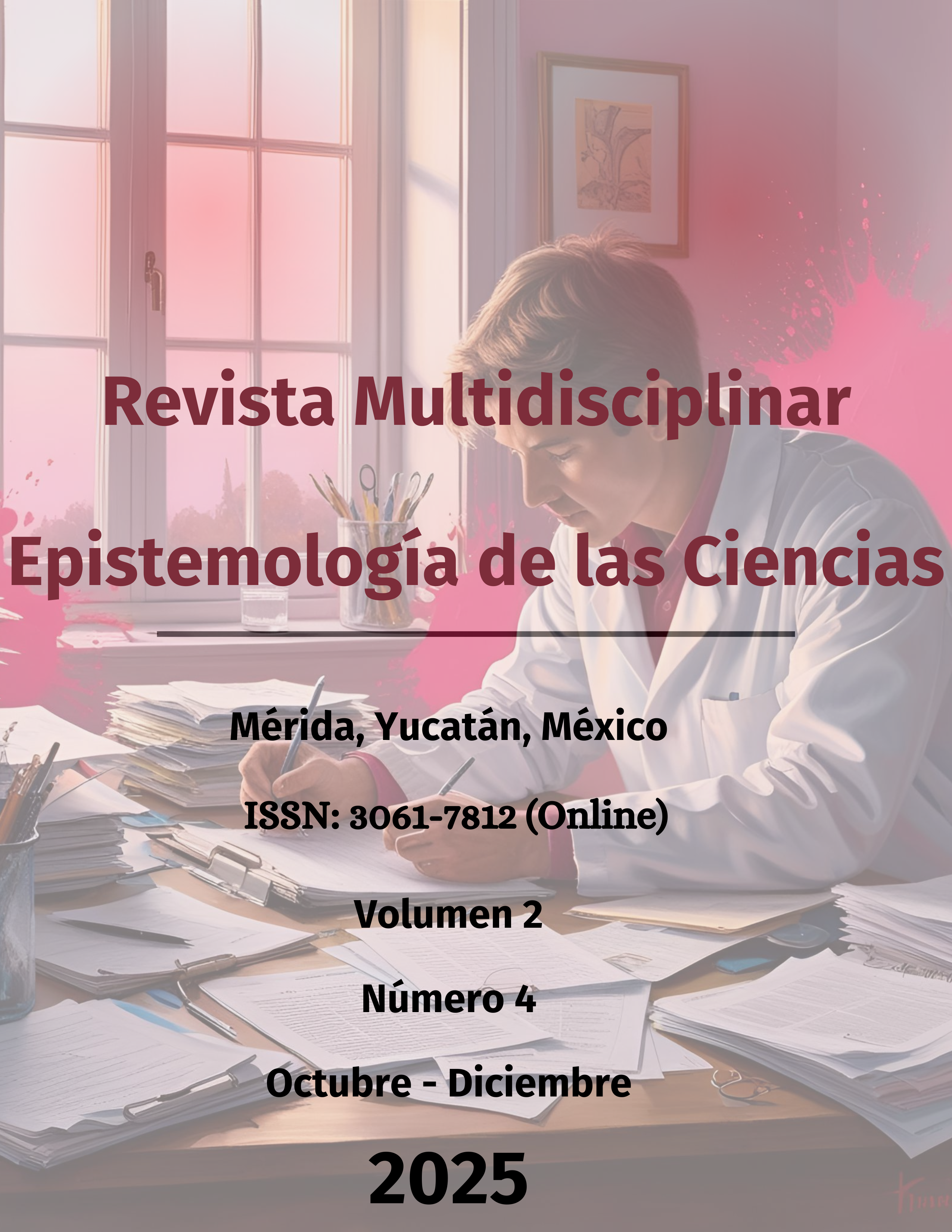Impact of Artificial Intelligence use on the personalization of learning in ecuadorian public high school students
DOI:
https://doi.org/10.71112/k2gp8n40Keywords:
Artificial Intelligence, personalized learning, academic motivation, public high school, educational innovationAbstract
This study analyzes the impact of the use of Artificial Intelligence (AI) on the personalized learning experience of Ecuadorian public high school students. Using a quantitative and descriptive approach, a structured questionnaire was administered to a sample of second- and third-year students to identify the relationship between the pedagogical use of AI, motivation, and academic performance. The results show that AI-based tools allow content, feedback, and teaching pace to be tailored to individual characteristics, generating more inclusive and adaptive learning environments. Furthermore, a positive and significant correlation is observed between the frequency of AI use and perceptions of autonomy, motivation, and performance. It is concluded that the ethical and pedagogical integration of AI constitutes an innovative resource for improving educational quality, reducing digital divides, and strengthening equity in the Ecuadorian public high school system.
Downloads
References
Akgün, S., & Greenhow, C. (2025). Ethical and pedagogical implications of artificial intelligence in K-12 education: A systematic review. Computers and Education: Artificial Intelligence, 6, 100223. https://www.researchgate.net/publication/354759795_Artificial_intelligence_in_education_Addressing_ethical_challenges_in_K-12_settings
Bayly-Castañeda, K. (2024). Crafting personalized learning paths with AI for lifelong learning: A systematic literature review. Frontiers in Education, 9, 1424386. https://doi.org/10.3389/feduc.2024.1424386 DOI: https://doi.org/10.3389/feduc.2024.1424386
Collin, S., Lepage, A., & Nebel, L. (2024). Ethical and critical issues of artificial intelligence in education: A systematic review of the literature. Canadian Journal of Learning and Technology, 49(4). https://doi.org/10.21432/cjlt28448 DOI: https://doi.org/10.21432/cjlt28448
Contrino, M. F., Membrillo-Hernández, J., & Aguilar-Muñoz, A. (2024). Using an adaptive learning tool to improve student performance and satisfaction in online and face-to-face education for a more personalized approach. Smart Learning Environments, 11, 27. https://doi.org/10.1186/s40561-024-00292-y DOI: https://doi.org/10.1186/s40561-024-00292-y
Creswell, J. W., & Creswell, J. D. (2024). Research design: Qualitative, quantitative, and mixed methods approaches (6th ed.). SAGE Publications. https://us.sagepub.com/en-us/nam/research-design/book269103
Du Boulay, B. (2023). Artificial intelligence in education and ethics. In M. K. Barbour, R. Bates, A. Fidalgo Blanco, & T. N. M. Davis (Eds.), Handbook of Open, Distance and Digital Education (pp. 93–108). Springer Nature Singapore. https://www.researchgate.net/publication/367420600_Artificial_Intelligence_in_Education_and_Ethics DOI: https://doi.org/10.1007/978-981-19-2080-6_6
Gayed, J. M., Flor, N., & Moraes, T. (2024). Educators’ perspective on artificial intelligence: A survey of in-service teachers’ attitudes and use in teaching practice. Cogent Education, 11(1), 2447169. https://doi.org/10.1080/2331186X.2024.2447169 DOI: https://doi.org/10.1080/2331186X.2024.2447169
Giannakos, M., Divitini, M., Sharma, K., & Chen, W. (2024). The promise and challenges of generative AI in education: A systematic review. Behaviour & Information Technology. https://doi.org/10.1080/0144929X.2024.2394886 DOI: https://doi.org/10.1080/0144929X.2024.2394886
Hinojo-Lucena, F. J., Aznar-Díaz, I., Romero-Rodríguez, J. M., & Marín-Marín, J. A. (2024). Artificial intelligence and digital competence in secondary education: A systematic review. Education and Information Technologies, 29, 10879–10902. https://www.mdpi.com/2227-7102/9/1/51 DOI: https://doi.org/10.3390/educsci9010051
Holmes, W., Bialik, M., & Fadel, C. (2023). Artificial intelligence in education: Promises and implications for teaching and learning (2nd ed.). Center for Curriculum Redesign. https://curriculumredesign.org/our-work/artificial-intelligence-in-education/ DOI: https://doi.org/10.58863/20.500.12424/4276068
Joksimovic, S., Ifenthaler, D., Marrone, R., De Laat, M., & Siemens, G. (2023). Opportunities of artificial intelligence for supporting complex problem-solving: Findings from a scoping review. Computers and Education: Artificial Intelligence, 4, 100138. https://doi.org/10.1016/j.caeai.2023.100138 DOI: https://doi.org/10.1016/j.caeai.2023.100138
König, J., Jäger-Biela, D. J., & Glutsch, N. (2023). Adopting and integrating artificial intelligence in schools: Methodological approaches and implications for educational research. Teaching and Teacher Education, 125, 104075. https://doi.org/10.1016/j.tate.2023.104075 DOI: https://doi.org/10.1016/j.tate.2023.104075
Létourneau, A., Deslandes Martineau, M., Charland, P., & Karran, A. (2025). A systematic review of AI-driven intelligent tutoring systems (ITS) in K-12 education. npj Science of Learning, 10(1). https://doi.org/10.1038/s41539-025-00320-7 DOI: https://doi.org/10.1038/s41539-025-00320-7
Miah, S. J., & Rahman, M. (2024). Artificial intelligence for inclusive and personalized education: A global perspective.Heliyon, 10(7), e29145. https://doi.org/10.1016/j.heliyon.2024.e29145 DOI: https://doi.org/10.1016/j.heliyon.2024.e29145
Miranda, S., Rodríguez, J., Pérez, A., & Torres, L. (2025). Artificial intelligence in education: An exploratory survey to understand its adoption, concerns, and ethical issues. Education Sciences, 15(8), 975. https://doi.org/10.3390/educsci15080975 DOI: https://doi.org/10.3390/educsci15080975
Mousavinasab, E., Sarrafzadeh, A., & Taghizadeh, M. (2024). Artificial intelligence-based personalized learning systems: A review of challenges and prospects. Frontiers in Artificial Intelligence, 7, 1456273. https://www.researchgate.net/publication/362283276_AI-based_Personalized_E-Learning_Systems_Issues_Challenges_and_Solutions
Ramírez-Montoya, M. S., & García-Peñalvo, F. J. (2024). Artificial intelligence for learning: Towards sustainable, inclusive, and ethical educational ecosystems. Heliyon, 10(5), e26209. https://doi.org/10.1016/j.heliyon.2024.e26209 DOI: https://doi.org/10.1016/j.heliyon.2024.e26209
Son, T. (2024). Intelligent tutoring systems in mathematics education: A systematic literature review using the SAMR model. Computers, 13(10), 270. https://doi.org/10.3390/computers13100270 DOI: https://doi.org/10.3390/computers13100270
Taherdoost, H. (2023). Validity and reliability considerations in survey research: A practical perspective for researchers in social sciences. Social Sciences, 12(7), 367. https://doi.org/10.3390/socsci12070367 DOI: https://doi.org/10.3390/socsci12070367
UNESCO. (2023). Guidance for generative AI in education and research. UNESCO. https://www.unesco.org/en/articles/guidance-generative-ai-education-and-research
Vieriu, A.-M. (2025). The impact of artificial intelligence (AI) on students’ learning outcomes: A systematic review.Education Sciences, 15(3), 343. https://doi.org/10.3390/educsci15030343 DOI: https://doi.org/10.3390/educsci15030343
Walter, Y. (2024). Embracing the future of artificial intelligence in the classroom: AI literacy, prompt engineering, and critical thinking. International Journal of Educational Technology in Higher Education, 21, 15. https://doi.org/10.1186/s41239-024-00448-3 DOI: https://doi.org/10.1186/s41239-024-00448-3
Wang, S., Wang, F., Zhu, Z., Wang, J., Tran, T., & Du, Z. (2024). Artificial intelligence in education: A systematic literature review. Expert Systems with Applications, 252, 124167. https://doi.org/10.1016/j.eswa.2024.124167 DOI: https://doi.org/10.1016/j.eswa.2024.124167
Downloads
Published
Issue
Section
License
Copyright (c) 2025 Multidisciplinary Journal Epistemology of the Sciences

This work is licensed under a Creative Commons Attribution 4.0 International License.











